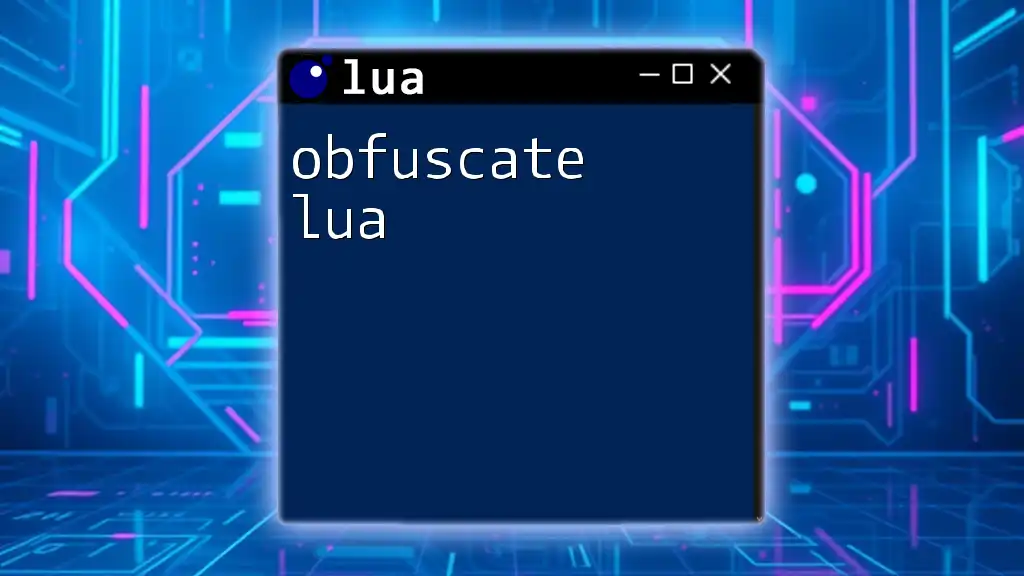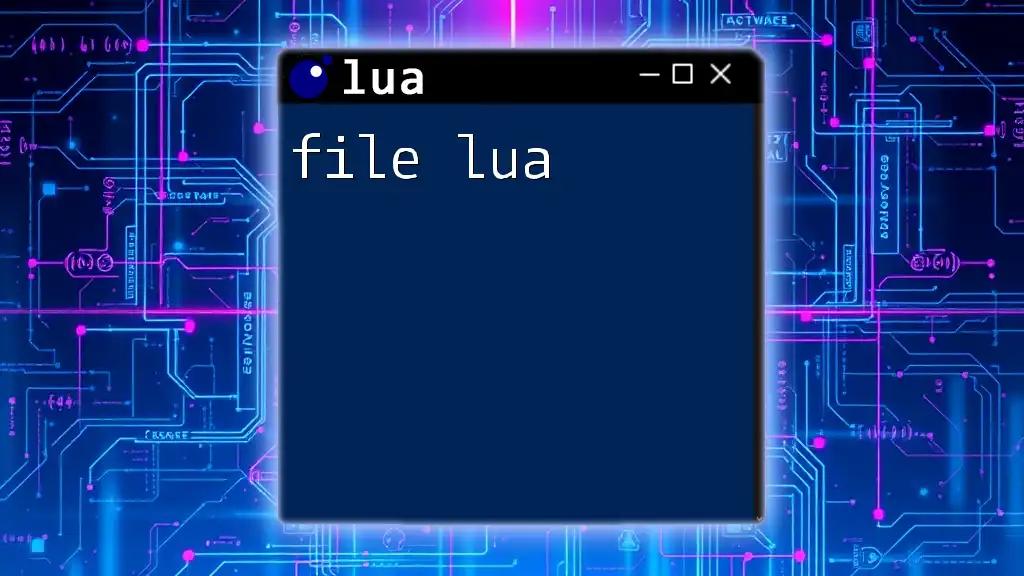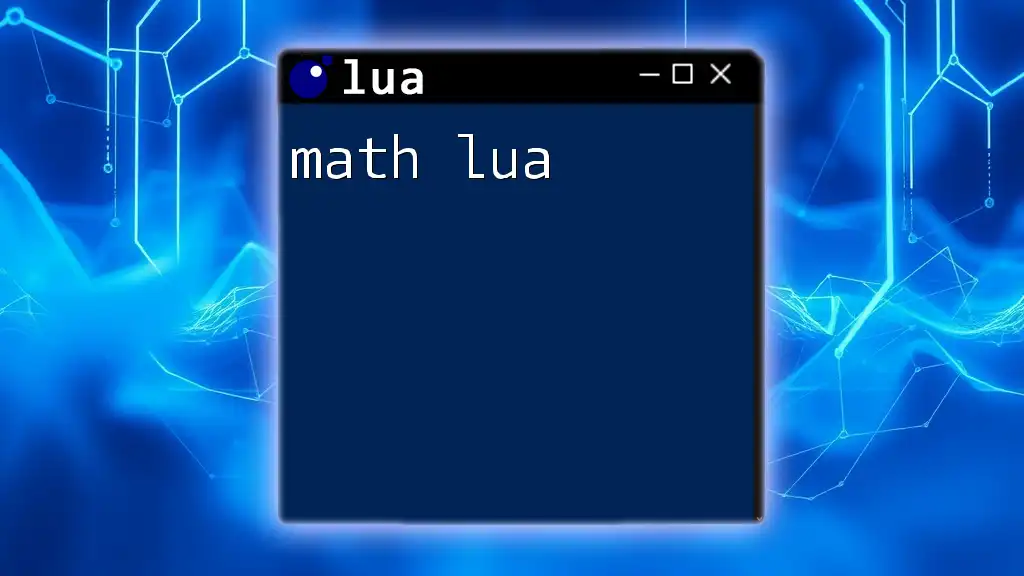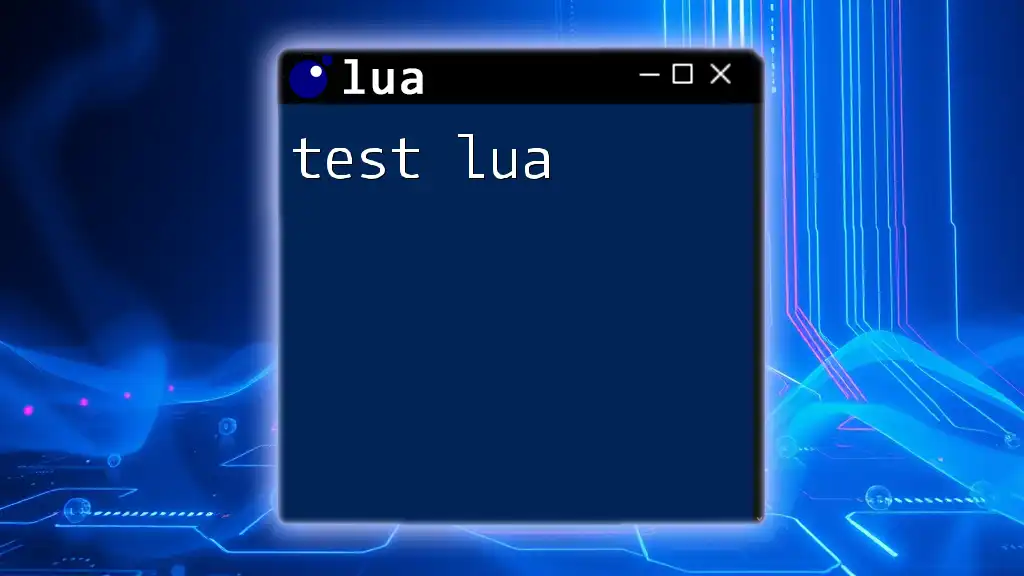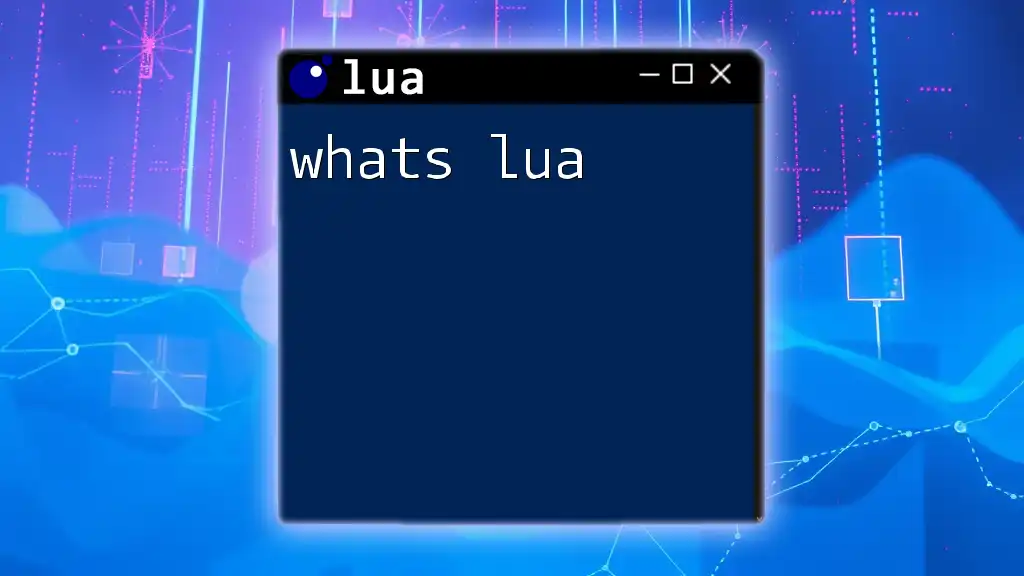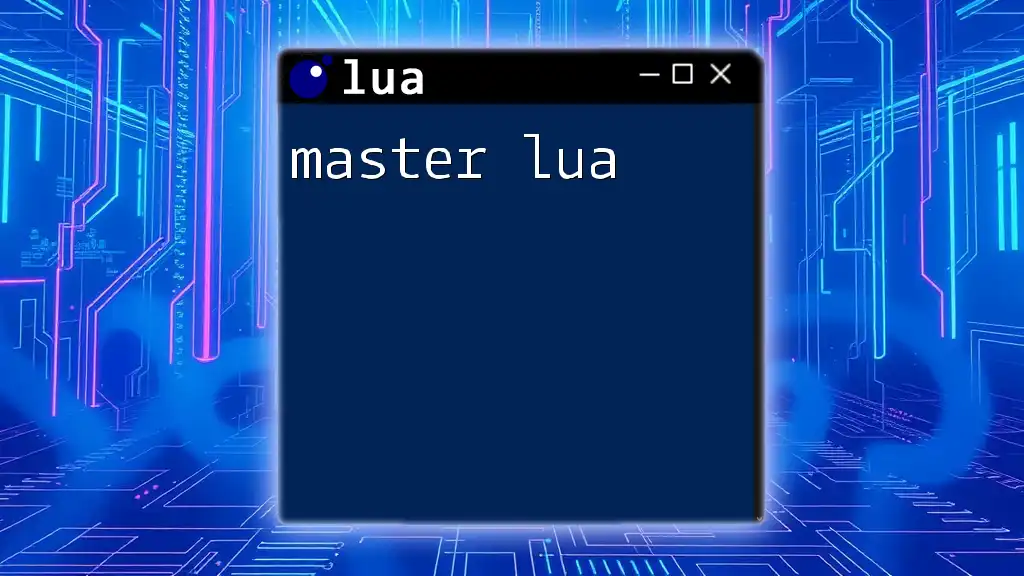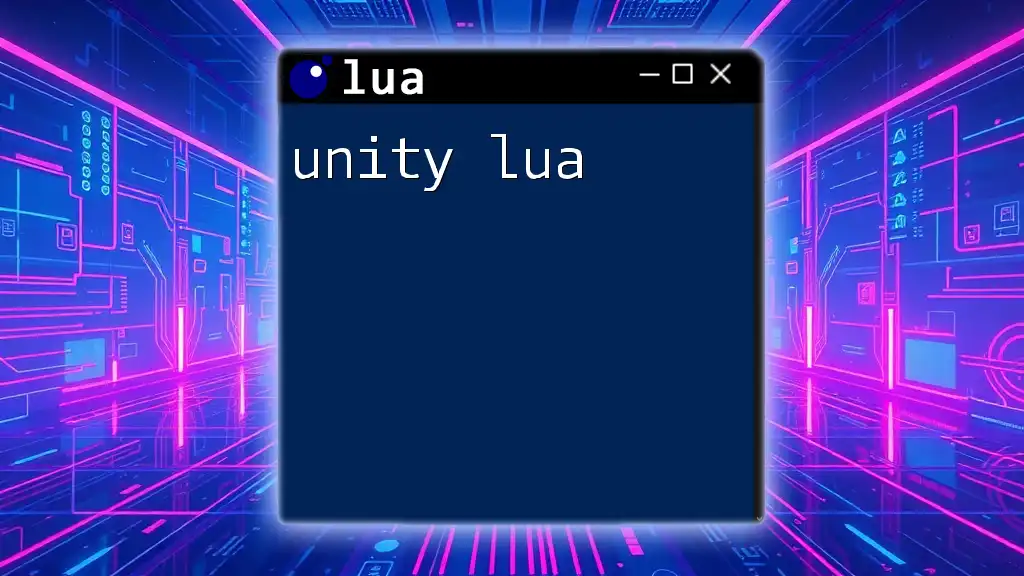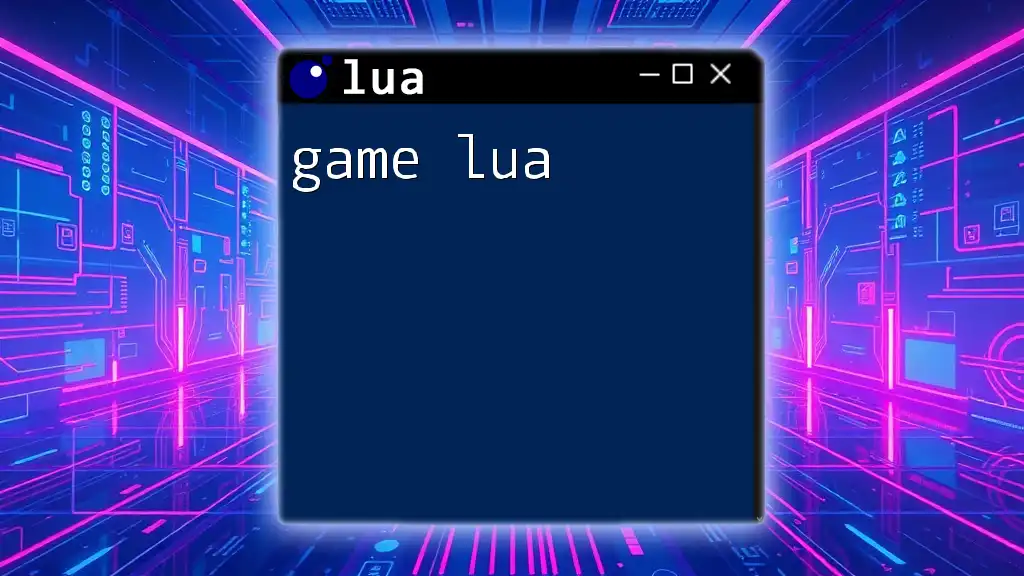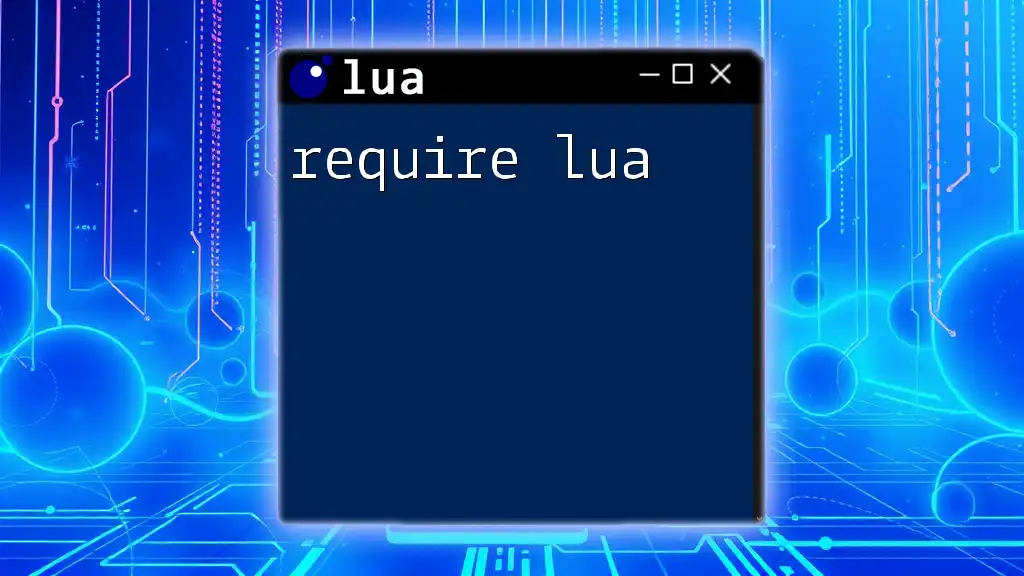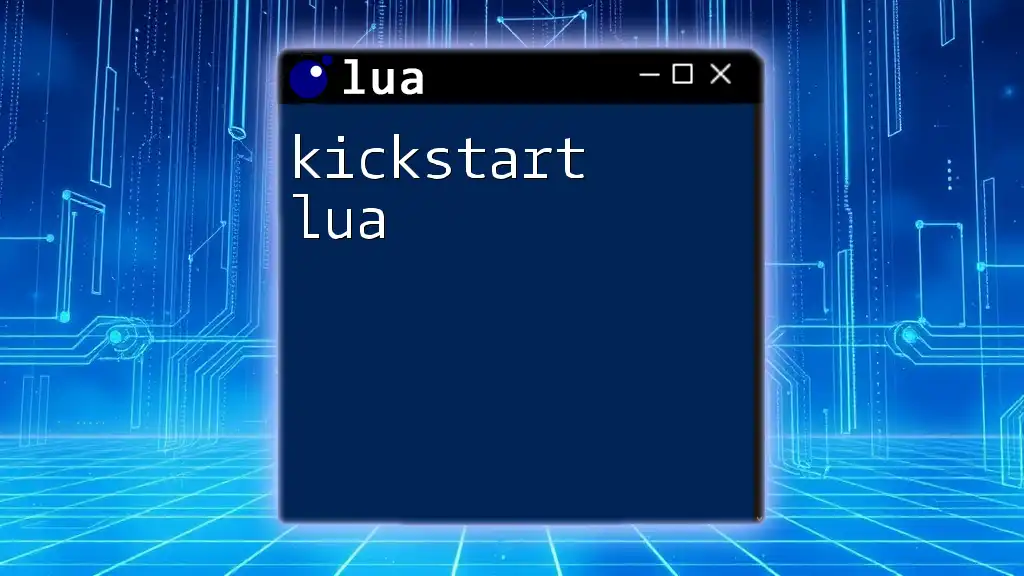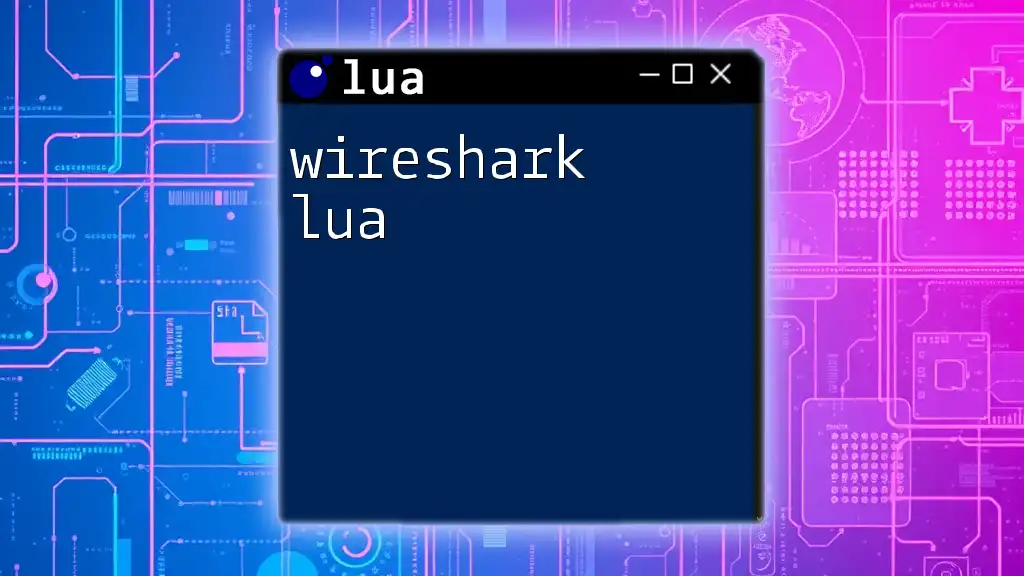Obfuscating Lua code involves transforming it into a version that is difficult to read while preserving its functionality, often to protect intellectual property or sensitive algorithms.
Here’s an example of a simple Lua script and its obfuscated version:
-- Original code
function add(a, b)
return a + b
end
print(add(2, 3))
-- Obfuscated code
function a(b, c)
return b + c
end
print(a(2, 3))
Introduction to Code Obfuscation
What is Code Obfuscation?
Obfuscation is the process of transforming code into a version that is difficult to understand, while maintaining its functionality. This technique is commonly used in the realm of software development to protect intellectual property and deter malicious users from reverse engineering the code. In the context of Lua, obfuscation can safeguards scripts, especially in game development and applications where proprietary logic is vital.
Why Obfuscate Lua Code?
Obfuscating Lua code offers several advantages:
- Protecting intellectual property: By making the code difficult to interpret, developers can protect their proprietary algorithms and implementations from competitors.
- Preventing reverse engineering: Obfuscated code makes it immensely more challenging for malicious users to decipher and reuse your code.
- Enhancing code security: Ensuring sensitive data and logic remain untouched can lower the risk of vulnerabilities being exploited.
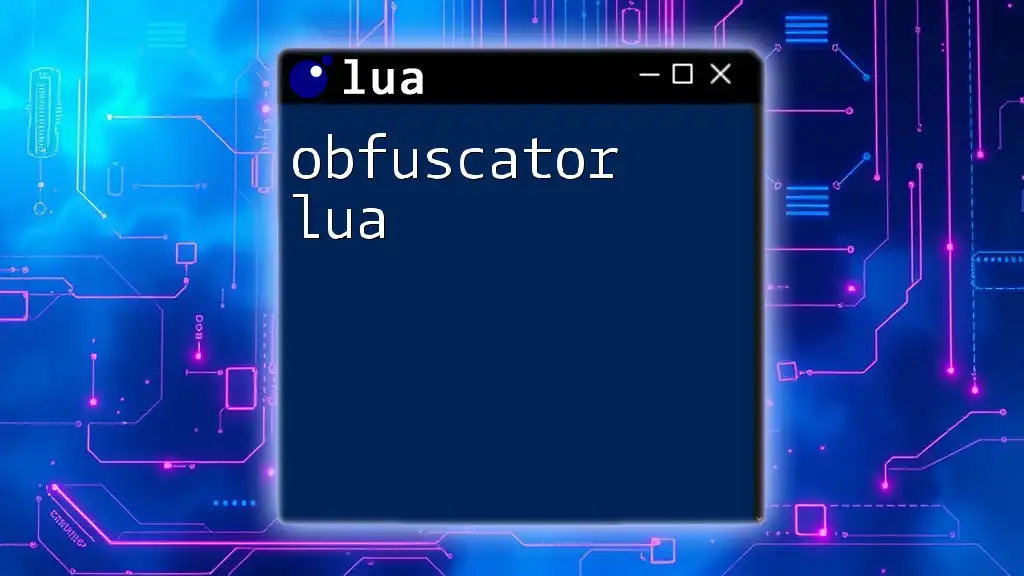
Understanding Lua Basics Before Obfuscation
A Brief Overview of Lua
Lua is a lightweight, embeddable scripting language that is widely used in game development and application scripting. Its simple syntax, dynamic typing, and flexibility make it a popular choice among developers. Understanding its basic structures is essential before diving into obfuscation.
Common Use Cases for Lua
Lua is commonly used in various domains:
- Game development: Many popular game engines utilize Lua for scripting game mechanics and AI.
- Scripting in applications: Embedded scripting can enhance applications, allowing for automation and customization.
- Web development with Lua: Frameworks like Lapis use Lua for responsive web development, capitalizing on its speed and efficiency.
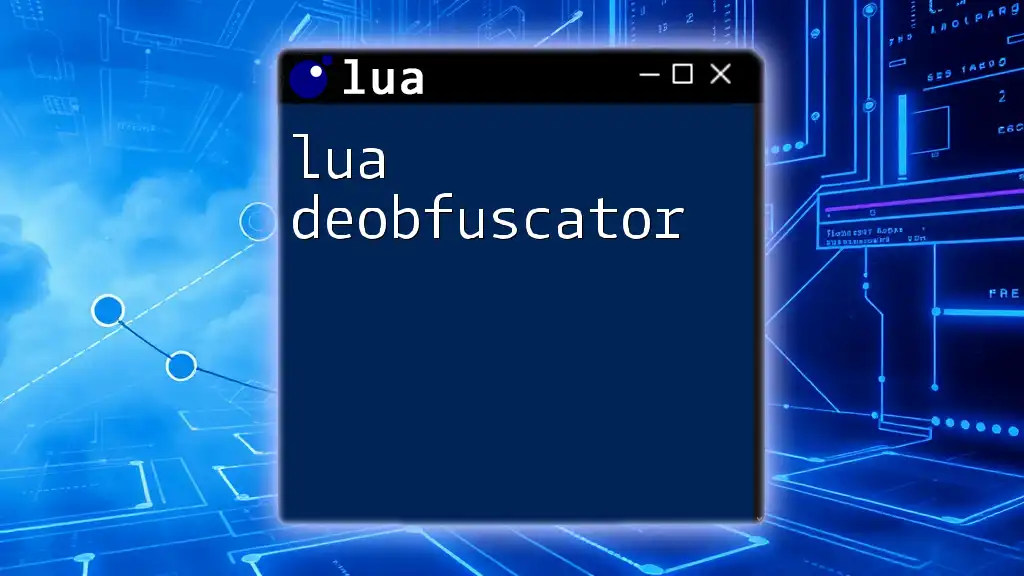
Methods of Obfuscating Lua Code
Manual Obfuscation Techniques
One way to obfuscate Lua code is through manual techniques that require a good understanding of the language structure:
- Renaming variables and functions: Change descriptive names to cryptic abbreviations, making it harder for someone to understand the code at a glance. For example:
function calculateTotal(itemPrices)
local total = 0
for _, price in ipairs(itemPrices) do
total = total + price
end
return total
end
can be transformed into:
function a1b2(b)
local c = 0
for _, d in ipairs(b) do
c = c + d
end
return c
end
- Removing comments and whitespace: A clean, compact code without unnecessary comments makes reverse engineering more difficult. Consider:
-- Calculate the total price
local total = 0
for _, price in ipairs(prices) do
total = total + price
end
return total
After obfuscation:
local a=0
for _,b in ipairs(c)do
a=a+b
end
return a
- Restructuring control flow: Change the logical structure of the code to confuse the reader. For instance, utilizing `goto` statements to create non-linear execution can obscure the intended flow.
Automated Obfuscation Tools
To streamline the obfuscation process, developers often turn to automated tools. Some notable options include:
-
LuaObfuscator: A popular tool that allows developers to automatically obfuscate their Lua scripts. It provides various settings for renaming variables, removing whitespace, and more.
-
Luerl: A project that combines Lua with Erlang, which may also include features for obfuscation.
Automated tools save time and effort, but developers need to weigh the benefits of manual techniques against the capabilities of these tools.
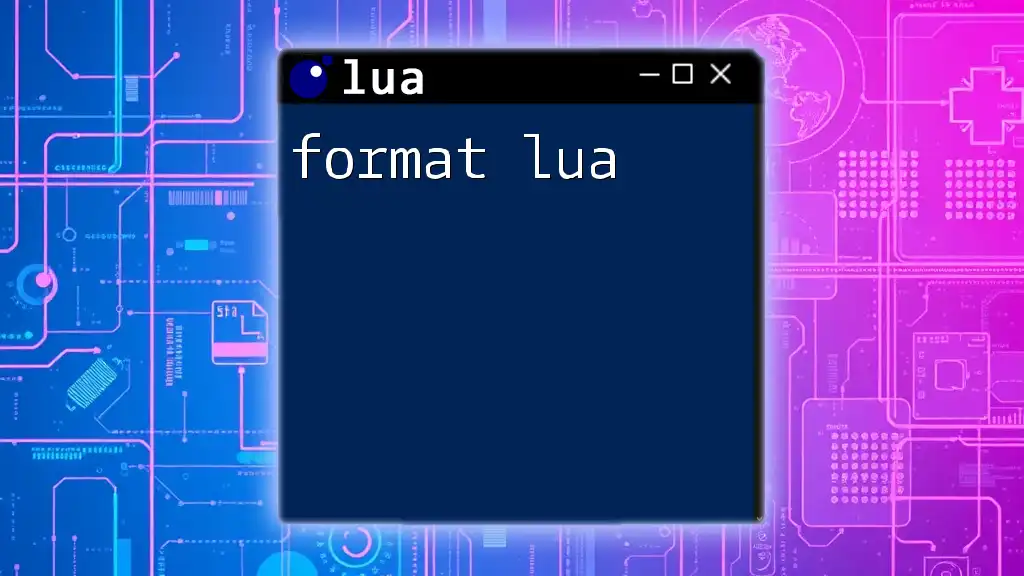
Advanced Obfuscation Techniques
Encoding and Encryption Techniques
In addition to standard obfuscation, advanced techniques can significantly increase security:
- Encoding Lua code to base64: Encoding is a simple yet effective way to hide code. Here’s how to encode and decode a string:
local function encodeToBase64(input)
-- encoding logic here...
end
encodedString = encodeToBase64("print('Hello, World')")
- Encrypting Lua scripts: By using cryptographic libraries, developers can encrypt sensitive scripts. Libraries like LuaCrypto allow for the implementation of various encryption algorithms. The following snippet shows a way to encrypt and decrypt a Lua string:
local function encrypt(input)
-- encryption logic here...
end
local function decrypt(encryptedInput)
-- decryption logic here...
end
Using Custom Encoding Functions
Creating a custom obfuscation function can add a layer of complexity. For example:
local function obfuscateString(str)
return str:gsub(".", function(c) return string.char(string.byte(c) + 1) end)
end
This function shifts each character in a string by one place in the ASCII table, making it harder to read.
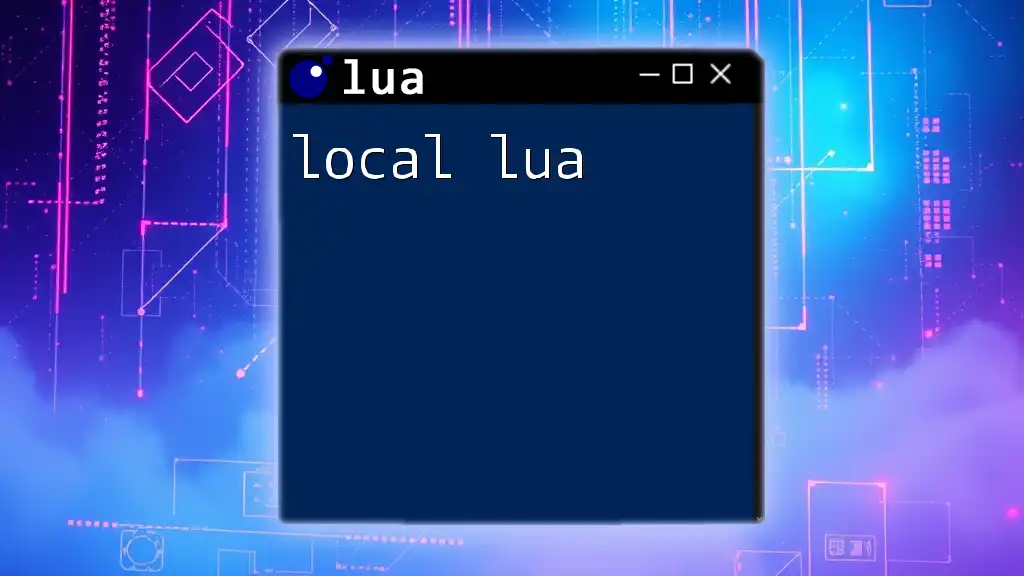
Best Practices for Lua Obfuscation
Maintain Code Readability
Striking a balance between obscurity and maintainability is crucial. Over-obfuscating can lead to maintenance headaches, making future updates challenging.
Documenting Original Code
Before embarking on obfuscation, it is essential to document the original code thoroughly. This documentation serves as a reference point for future developers and ensures that key logic is not lost in translation.
Testing Your Obfuscated Code
Testing obfuscated code is vital. Developers should ensure that the obfuscation process hasn’t altered the code’s functionality. Debugging tools may need to be adapted for use with obfuscated scripts.
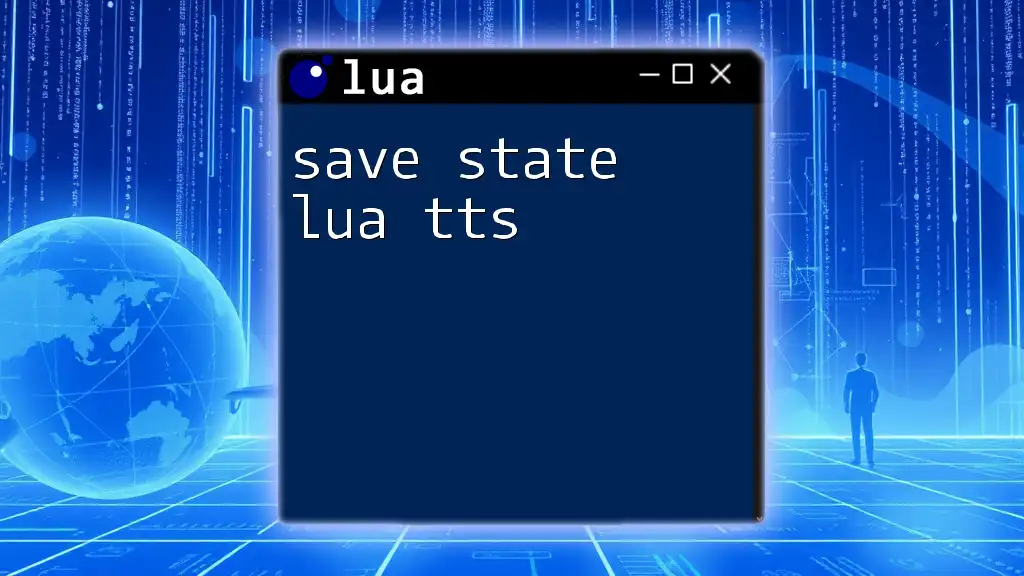
Pitfalls and Challenges in Code Obfuscation
Potential Performance Loss
Obfuscation may introduce performance overhead. Developers should profile their code periodically, especially after major changes, to ensure acceptable performance levels.
Compatibility Issues
Lua has multiple versions, and obfuscated code might behave differently depending on the version. Testing across various environments ensures compatibility and functionality.
Legal Considerations
Before applying obfuscation, developers should familiarize themselves with licensing agreements. Certain libraries or frameworks may impose restrictions, and it’s crucial to comply with legal ramifications.
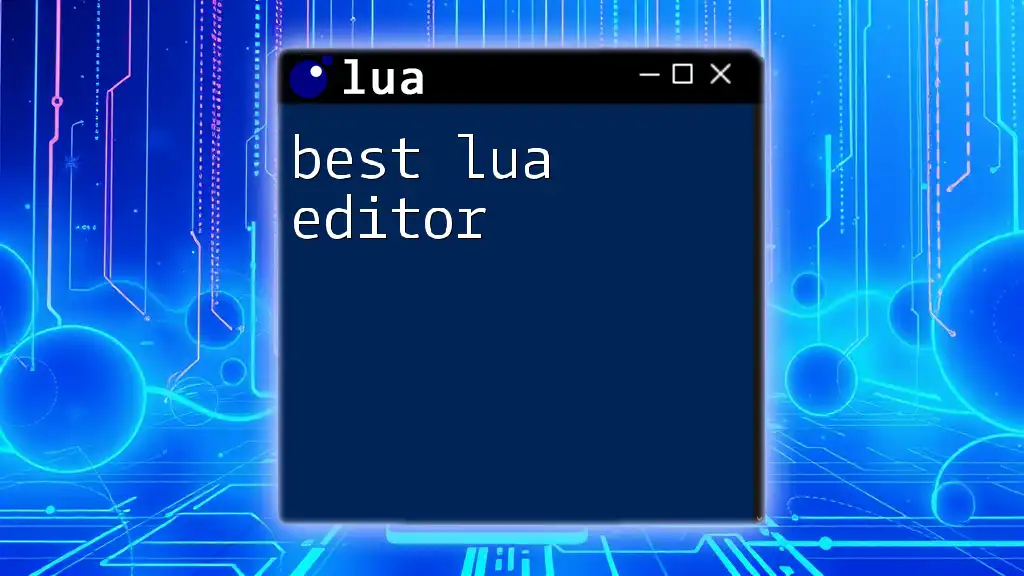
Conclusion
Final Thoughts on Code Obfuscation in Lua
Obfuscating Lua code presents an effective way to protect your intellectual property. While it enhances security and deters unauthorized access, responsible practices are needed to maintain the balance between security and functionality.
Further Resources
Developers looking to learn more about Lua can refer to the official Lua documentation and the various obfuscation tools mentioned. Continuous learning will help ensure your skills remain sharp and applicable.
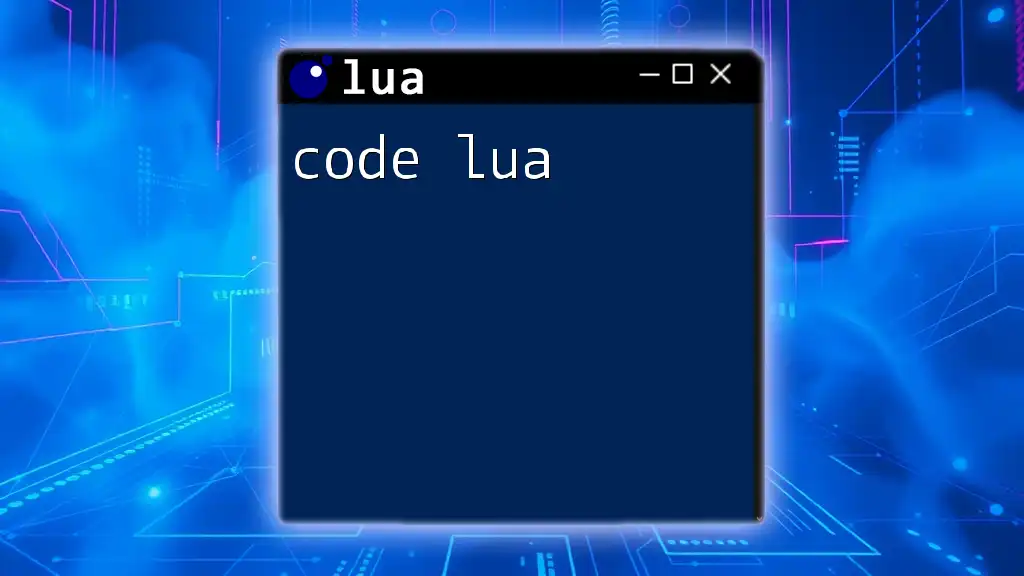
Frequently Asked Questions
What is the best obfuscation method for Lua?
The best method often depends on your specific needs, but a combination of manual and automated techniques tend to yield the best results.
Are there risks associated with obfuscating Lua code?
Yes, risks include reduced performance, potential compatibility issues, and poorly maintaining code if overly obfuscated.
How can I reverse engineer obfuscated Lua code?
While exploring obfuscation techniques, it is essential to keep in mind the ethical considerations involved in reverse engineering code.
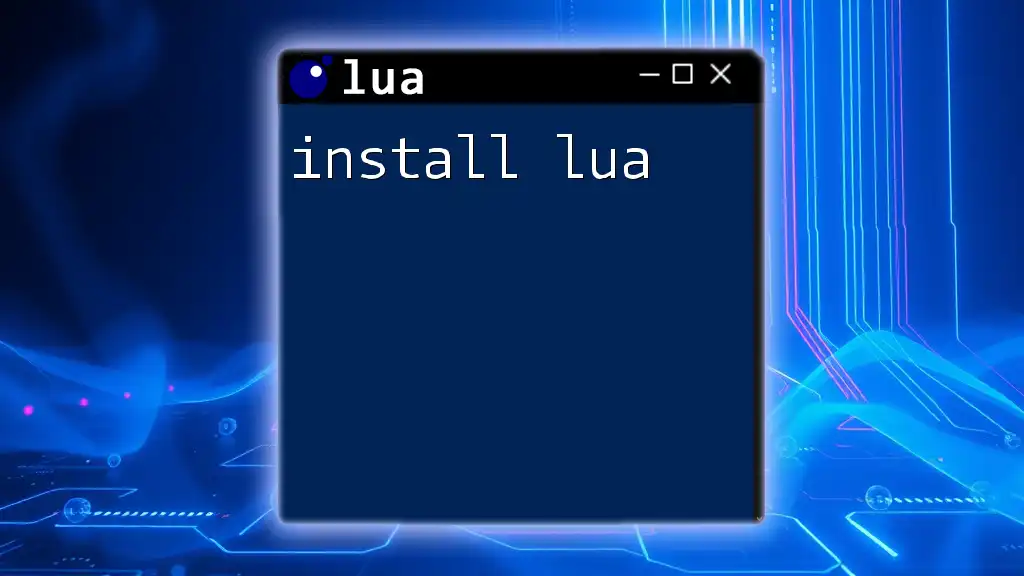
Call to Action
Join Our Workshop on Lua Obfuscation!
To learn more about obfuscation techniques and enhance your skills, consider enrolling in our comprehensive workshops. Participants will gain practical insights and hands-on experience with obfuscation tools and methods.

